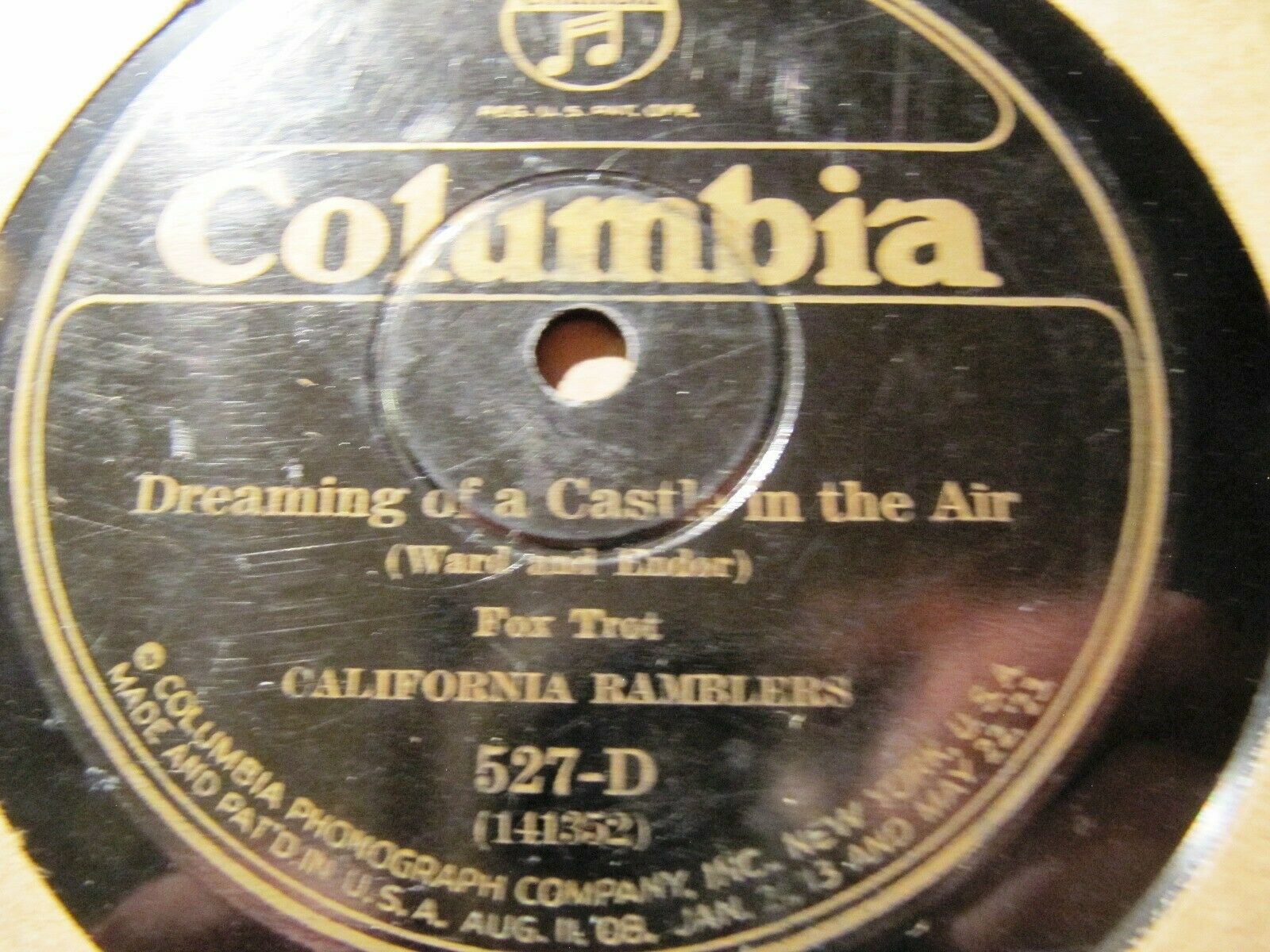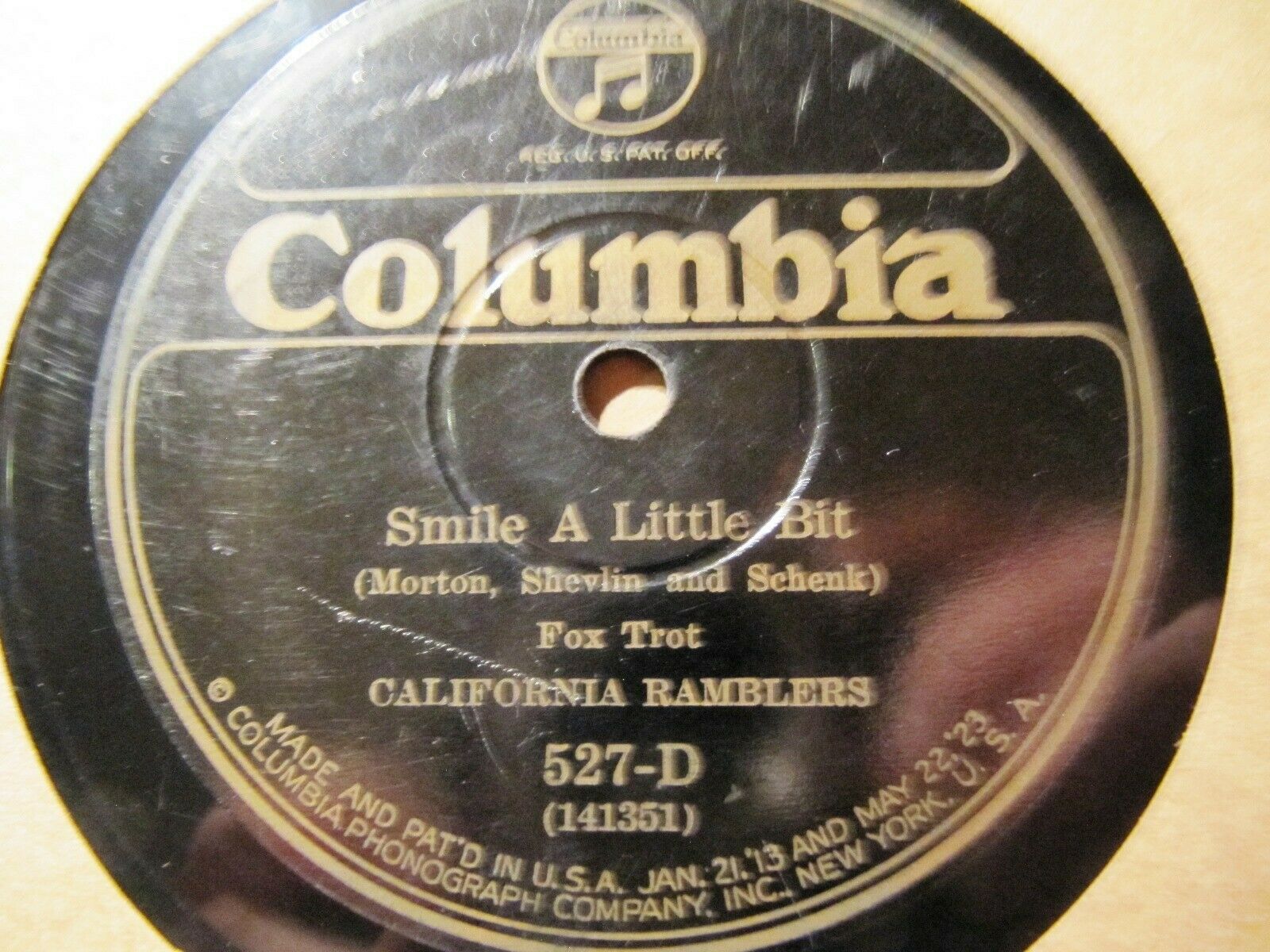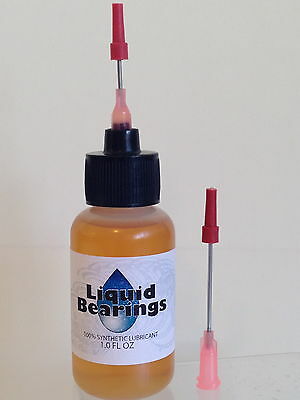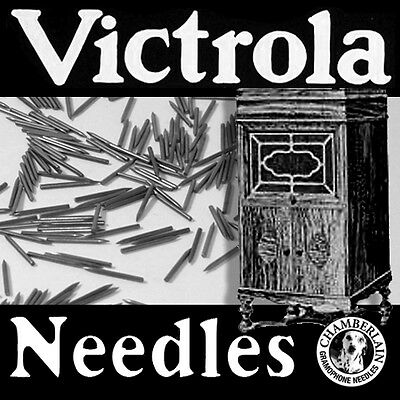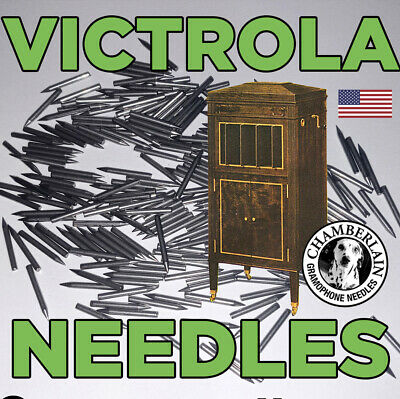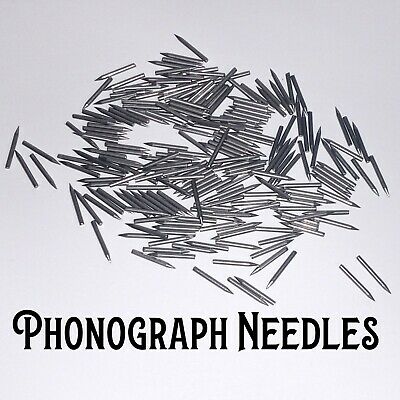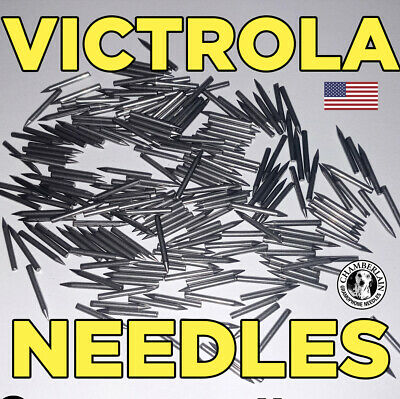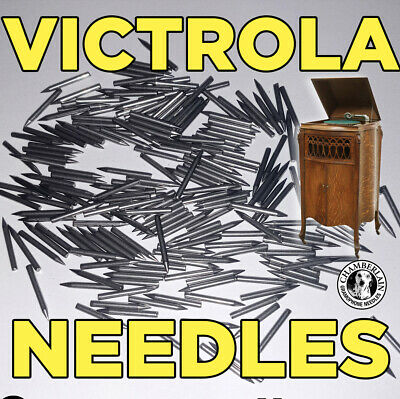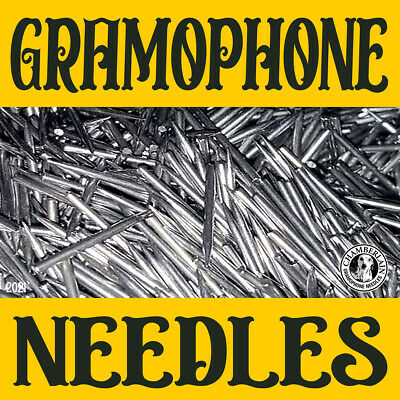-40%
1925 CALIFORNIA RAMBLERS elctr COLUMBIA 527-D Dreaming of a Castle Smile Little
$ 7.91
- Description
- Size Guide
Description
Shipping: All items will be packed safely in a sturdy package for safe shipping.We ship internationally and offer combined shipping for multiple purchases.
Expedited, Priority Mail and FedEx shipping available
Once payment is received, we ship your item on the next business day.
Over 1000 Records available. If you plan to buy several records: Click the "ADD TO CART" button. Once you have selected all the records you want, go to Cart and check out. COMBINED SHIPPING will be applied automatically. If shipping seems high and for INTERNATIONAL BUYERS: In Cart click REQUEST TOTAL, and I will send you an invoice. Lower priced options available for International Shipping.
A series of great JAZZ Records from early Ragtime to Beb-Bop on 78 rpm Victrola Records
Great Jazz by on one of their first electric records:
CALIFORNIA RAMBLERS
California Ramblers ?– Smile A Little Bit / Dreaming Of A Castle In The Air
Label:
Columbia ?– 527-D
A Smile A Little Bit
Written By – Morton, Shevlin And Schenk
B Dreaming Of A Castle In The Air
Written By – Ward And Endor
10" 78 rpm record
Condition:
VERY GOOD PLUS rubs rare fine scratches, Plays VG++ w some crackle at start
In the first few years after 1917 the Original Dixieland Jass Band had begun to make its famous series of Victor discs, popular music was mostly recorded by small (usually five-piece) groups playing in the Original Dixieland Jass Band tradition. In the early 1920's, however, it became apparent that there was a growing demand for jazz-flavored dance music and the record companies in New York were looking for somewhat bigger orchestras that could capably handle the "Latest Hits". In November 1921 a nine-piece group assembled in the Vocalion recording studio to wax two titles, The Sheik and Georgia Rose, which were issued as '"Played by The California Ramblers". The name was chosen in true fashion of the day, slightly exotic and definitely non-east coast, which seemed to indicate that their music was totally new and unconventional. (There were also the Original Memphis Five, Original Indiana Five, and Tennessee Tooters, Arkansas Travelers and many more, strictly New York based bands.) The Ramblers were mostly a studio outfit and for almost ten years they recorded for practically every company, although by about half of them they were labeled "Golden Gate Orchestra".
In the first few months of their existence the Ramblers' personnel varied somewhat but by April 1922 it included trumpeters Bill Moore and Frank Cush, trombonist Lloyd Olson, reedmen Freddy Cusick and, above all, Adrian Rollini who were to form the nucleus of the band for several years to come.
From the beginning the band was managed by Ed Kirkeby who, born in 1891, had been a record promoter for Columbia and was extremely well-connected in the New York music scene. Kirkeby arranged several hundred recording sessions for the California Ramblers (and its smaller units The Little Ramblers, The Goofus Five, The Five Birmingham Babies, The Vagabonds and the Varsity Eight) and booked them for long residencies first at the Post Lodge in Westchester and later at the Pelham Inn, The Bronx, re-christened the Ramblers' Inn because of the band's reputation. At these clubs the band needed a front man to announce, wave a baton (or a bow) and generally make the whole affair slightly more presentable so violinist Arthur Hand was appointed "stehgeiger".
The Ramblers adopted a slightly different playing style for the various labels they recorded for, thus enabling the record companies to have their own "sound". It wasn't until the development of electrical recording in 1925 that the true depth of the Rambler music became apparent and especially the Columbia company with its superb recording technique and smooth-surfaced records managed to capture the band in full glory. Although only one microphone was used and long before the days of dubbing, artificial reverb and stereo, the recorded sound has a tremendous perspective that even today baffles the listener. Also, these Columbia recordings were rather jazz-orientated, allowing for plenty of improvised solos and for what may already be described as "swing". By the time, Ev'rything Is Hotsy-Totsy Now, was recorded, trumpeter Bill Moore had left the band to join Ben Bernie's Orchestra and was replaced by Red Nichols (staying for only two months, no doubt because of lack of time as he was probably the busiest musician in the entire USA) who plays the wonderful trumpet solo followed by an equally impressive Jimmy Dorsey on alto. At least three hands can be heard in the piano solo; pianist Irving Brodsky aided by Adrian Rollini who obviously takes quite a while to get from his bass saxophone to the piano and back. The trombone solo is of course by Tommy Dorsey, at the time still heavily influenced by Miff Mole (on casual listening it could be mistaken for Miff, but as the saying goes, "If you have doubts it isn't Mole".
Sweet Georgia Brown, played in the same relaxed tempo as the previous tune starts, after the intro, with a slightly improvised trumpet lead, typical for Red Nichols. After the verse, Tommy Dorsey sounds again almost like Miff and is followed by Jimmy Dorsey and a brief solo by Rollini on his bass sax before the end.
Adrian Rollini, originally a pianist and xylophonist, began to pioneer the bass saxophone and introduced this extremely difficult-to-play instrument to the Ramblers in 1922 as an alternative to double bass or tuba. Apart from providing the bass notes during the numbers, Rollini also took breaks and solos on his instrument that were in a class of their own. As this gave the Ramblers such a characteristic sound, many other reed players tried the bass sax as well but mostly with little success. (The great tenor saxophonist Coleman Hawkins used it briefly with the Fletcher Henderson Orchestra but he couldn't compete with Rollini; the latter was simply a natural born bass sax player). In late 1927 Rollini went to Europe for a little over 5 years and was temporarily replaced by his protTgT Spencer Clark, probably the only one who could satisfactorily follow in the master's footsteps.
The next session saw a few changes of personnel and Show Me The Way To Go Home, in spite of being a rather corny drinking-song with an obligatory hung-over vocal, is treated very well by the band with fine solos by the little-known but nonetheless excellent trombonist Herb Winfield, trumpeter Frank Cush and the much underrated Bobby Davis on alto. Although Give Me Today, a not-too exciting pop tune of the day has a rather dated vocal by Arthur Hall that probably isn't everyone's cup of tea, it has a good solo by Davis as well as an unusual trumpet-trombone chase chorus. Most of the original 78's used here have become rather scarce today, but because on the English issue, No Foolin' was coupled with a rendering of the immensely popular tune Bye Bye Blackbird by Leo Reisman and his Orchestra, it sold very well in Britain and most of Europe and can still be found in junkshops and at flea markets. There's another Arthur Hall vocal but also great trombone, trumpet and especially fine Rollini.
The Girl Friend too has a solo by trumpeter Roy Johnston but also an example of Bobby Davis' trick soprano playing, making the instrument sound like a Hawaiian guitar. (Davis developed this technique so to perfection that for many years collectors believed that on some records they actually heard guitarist Andy Sanella.) There are more solos by Davis on soprano and clarinet, Roy Johnston, and the fabulous trombonist Abe Lincoln (who was only nineteen when he briefly joined the band) on I'm Just Wild About Animal Crackers. She Belongs To Me, a true jazz piece, starts with fine trombone by George Troup and alto by Bobby Davis, followed, after the verse, by Roy Johnston who is clearly in a Nichols mood. The clarinet duet that follows (Davis and another) gives the performance a distinct Fletcher Henderson flavor.
Me Too is most noted for its solos by Davis (on alto and Hawaiian guitar imitation on soprano), and Troup. Before Spencer Clark replaced Rollini for a longer period beginning in September 1927 he had already participated in a few sessions. On She Knows Her Onions Clark (then also nineteen years old) is clearly present, playing with a somewhat lighter tone than his mentor. His timing and excellent breaks nevertheless prove how well this young musician could fill Rollini's shoes. Towards the end of the 1920's Clark went to Europe where he played with several American and European bands. In the 1930's he was back in the US but left fulltime music in 1939 to work for 15 years in aviation. He picked up the bass saxophone again around 1955 and played at jazz clubs and festivals until well in his eighties.
Another out-and-out jazz piece is Jack Pettis' composition Stockholm Stomp and this version by the Ramblers is particularly outstanding. From beginning to end the tune truly swings, beautifully arranged and brimful of solos by Chelsea Quealey, Bobby Davis, Sam Fink and Rollini. I Love The College Girls, another popular campus yell of the day is sung (like She Knows Her Onions) by some of the band members and manager Ed Kirkeby, who is clearly not a skilled vocalist but on the other hand doesn't sound as corny as Messrs. Hall and Fields. Davis plays the tune well enough though, with a good solo. Adrian Rollini is again prominent in Pardon The Glove (it is amazing how well his bass sax was recorded and so clearly audible in the ensembles), a composition by banjoist Howdy Quicksell. Al Duffy plays an almost hillbilly-style violin solo followed by Chelsea Quealey on trumpet, again some amazing Rollini and Bobby Davison alto.
Yes She Do has humorous lyrics sung by Kirkeby (albeit somewhat out of tune) and some of the band members, before a piano solo from Jack Russin (very virtuoso; it almost sounds like more than two bands), and a duet by Davis, in his Hawaiian style but on alto this time, with Tommy Felline on guitar The coda between bass sax and piano is another little masterpiece. Rollini introduces a few bars from Swanee River before the band goes into Lazy Weather. At a beautifully relaxed tempo it babbles along with short solos by one Eddie Lappe (an otherwise completely unknown trombonist but most of these data come from Ed Kirkeby's diary and can we be quite confident that it was he) and Rollini. Arthur Fields has a bit of a heavy-handed vocal chorus.
As said before, these Columbias were so well recorded that played with the right equipment one can hear Ed Kirkeby breathe in before he starts his vocal at the beginning of Vo-Do-Do-De-O Blues and after remastering it is even better audible more than seventy years later. Again there is a solo by Eddie Lappe and some excellent Bobby Davis. In September 1927 Spencer Clark took over from Adrian Rollini (who was soon to leave for Europe together with Bobby Davis and Chelsey Quealey) and he can be clearly heard in the ensemble of Nothin' Does-Does Like It Used To Do-Do-Do, especially during Ed Kirkeby's vocal and in the coda. Violinist Al Duffy has the solo in the middle-eight of the first chorus and trombonist Al Philburn has a fine solo towards the end.
At the beginning of It Was Only a Sun Shower, from the same date and played in the same relaxed tempo, pianist Jack Russin can be heard playing a few notes on celeste. The soprano-trombone chase chorus is by Davis and Philburn, played straight, but Davis switches to alto and the two take another chase; improvised this time. The muted trumpet solo immediately after that is by Bill Moore who was still with the Ben Bernie Orchestra but every now and then recorded again with the Ramblers.
The front line of the band underwent quite a few changes in the months to come (probably because of the impending departure of Quealey, Davis and Rollini) and the next sessions may have had quite a different personnel. It is difficult to establish who they all are but the alto saxophone solo in Make My Cot Where The Cot-Cot-Cotton Grows is by Pete Pumiglio.
What immediately strikes on playing the next tunes Mine, All Mine and Changes is the presence of a tuba (or rather the absence of a bass sax), which completely changes the flavor of the band. Although as a consequence, the Ramblers don't sound much like the Ramblers these are still nice enough titles with good solos by Bill Moore on trumpet, Al Duffy on violin and Pete Pumiglio, alto. Both tunes have a vocal by a trio consisting of Ed Kirkeby, "Crooning Composer" Sammy Fain and Artie Dunn.
Spencer Clark is back for the last three titles of this album. What Do You Say?, with a vocal by Kirkeby contains a good solo by Pumiglio and the band sounds like the Ramblers again. Singapore Sorrows has a typical "oriental" (or so it was interpreted) intro that was all the rage at the time and Freddy Cusick makes his soprano sound almost like an oboe, It is, however, a particularly fine tune and although it contains only one short improvised solo by Pete Pumiglio well worth the effort. Finally, The Pay Off a composition by Howdy Quicksell, had been excellently recorded by the Ramblers in May 1925 for Pathe as Dustin' The Donkey. Why the tune was revived and renamed is unknown (Quicksell is listed as the composer on both recordings) but the result is fabulous. The number swings from beginning to end, wonderfully arranged with great solos by probably Fred van Eps Jr. on trumpet, Pete Pumiglio on alto, Al Duffy on violin, Reg Harrington on trombone and especially Spencer Clark who once again proves to be in Adrian Rollini's class.
This last tune more or less marks the end of an era. By the time Rollini got back to the US the Twenties were no longer roaring and flappers, raccoon coats, the Charleston and jazzed-up college songs that the California Ramblers had been so closely connected to were things of the past.
More Great Records on sale right now:
CLICK ON THIS LINK TO SEE MORE GREAT RECORDS
CLICK ON THIS LINK TO SEE ALL ITEMS - VINTAGE BOOKS, VICTROLA and TURNTABLE ITEMS, CDs, Books and DVDs
http://shop.ebay.com/carsten_sf/m.html
====
A Quick NOTE ON GRADING AND SHIPPING:
As you can see from my feedback, I try hard to earn your POSITIVE FEEDBACK and FIVE STAR RATINGS.
If for any reason your transaction was NOT SATISFACTORY, pls contact me and I will work something out with you. YOU WILL NEVER HAVE A REASON TO GIVE ME A NEGATIVE RATING or a LOW STAR RATING.
Quick note on grading:
The Grade (Excellent to Poor, I don't give Mint) refers to the WEAR of the record. Any other defects are stated separately
When I listen to a record, I may also give it an aural grade (again E to P), and make a SUBJECTIVE judgment of the pressing quality for hiss and surface noise.
"SUPERQUIET" is basically noiseless, like a vinyl pressing.
"VERY QUIET" is an exceptionally quiet record for a given pressing.
"Quiet" is a record that is a great example without undue noise for a give pressing.
These judgments are SUBJECTIVE and will depend one the styli, phonograph etc. you use on your own equipment.
Multiple item shipping: I am happy to combine items for shipment in one parcel.
If you win multiple items, pls send me an INVOICE REQUEST to calculate the correct postage. Ebay check out will not give you the correct multiple item discount!
Records will be packed safely between corrugated cardboard in a sturdy box with plenty of padding for safe shipment.
Shipment is usually Media Mail, unless you request another service. Shipping is at your risk, I will be happy to insure items at your cost.
I charge actual postage plus a small fee for packing materials
As always, I guarantee your satisfaction. If you don't like the item, just return it, and I will refund the full purchase price.
If you are in the San Francisco area, I encourage pick-up in person.
US Domestic Shipping:
Here is a guideline for US Media Mail Shipping:
Prices below are for regular 78 rpm records. Up to about 5 records, I will ship Edison Discs for the same rates. Albums from Album Sets count as 1 record. Above that and for international shipments, it will be actual weight plus a small packing charge (1-3$ depending on size of shipment)
1 record: 4.75 – 5.50$
2 records: 6.50$
5 records: 8.00$
10 records: 12.00$
MANY MORE RECORDS: Don't worry. I safely ship 40 - 50 pounds of records double boxed in moving boxes, and even then Media Mail will probably not exceed 35$.
Please send me a message if you would like to get an estimate for you shipping rates!
I am very happy to ship records worldwide.
Please use the EBAY shipping cost only as a guideline. My actual charges are usually lower
One record usually ships for 25$ for 10" 25-35$ for most 12" records (Less for Canada).
As always, I would appreciate any suggestions and corrections from you, pls contact me with any question.
Thank you very much, and good luck bidding !!!
Powered by SixBit's eCommerce Solution
